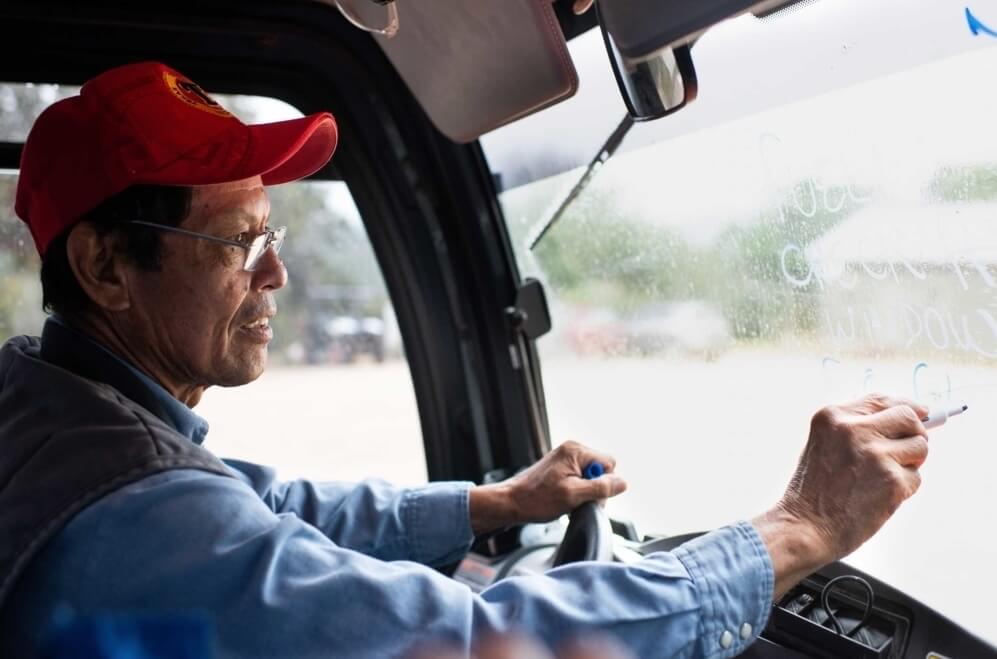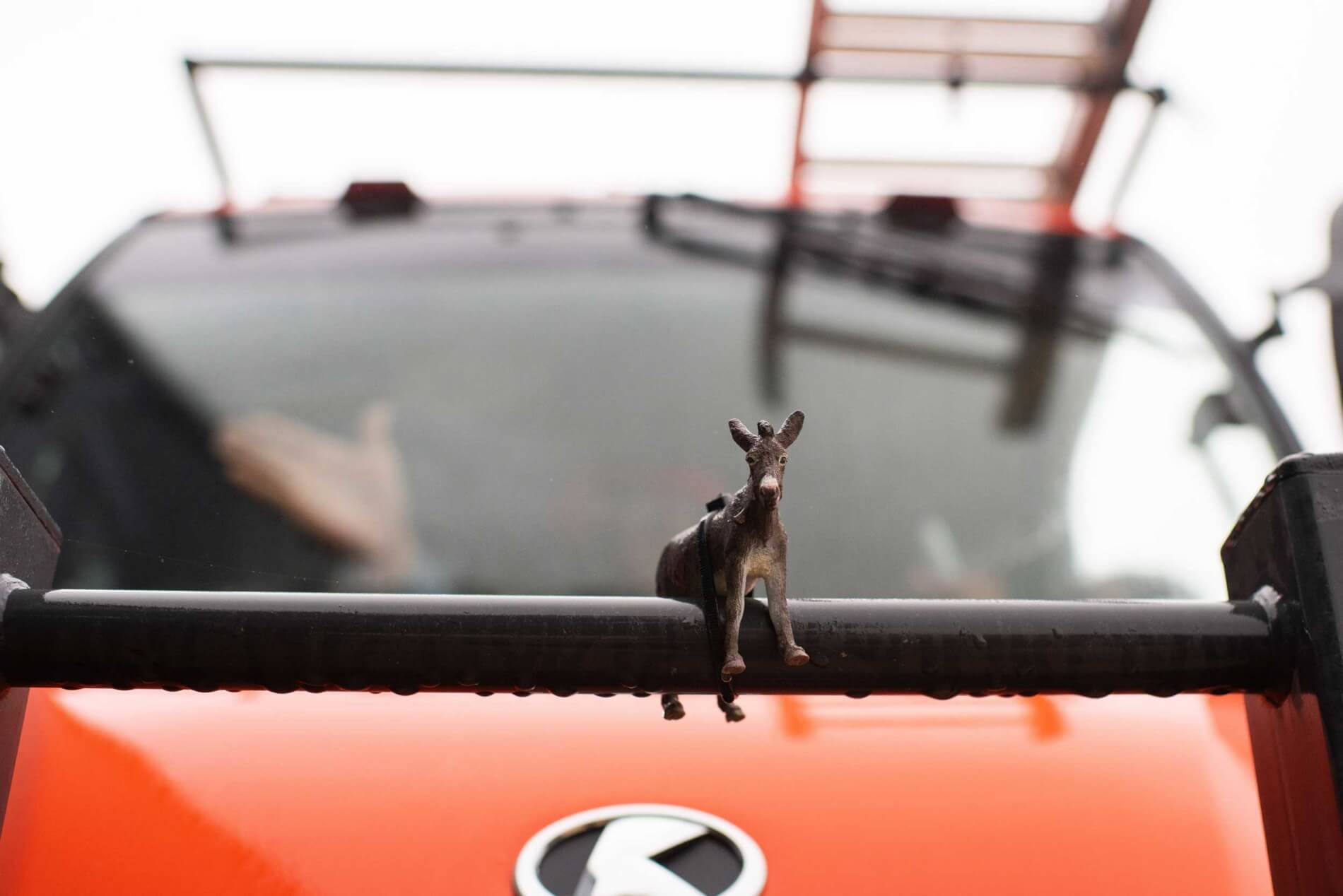
William Macedo begins most days by writing his to-do list on the windshield of his donkey.
You read that right. “Donkey” is an apt nickname for the utility vehicle William Macedo uses to tool around the Canyon. “It’s small, it’s strong, and it can carry a lot of stuff,” he says. And the windshield is a perfect place to use an erasable marker to jot down reminders like “kitchen caulking” and “check parking lights” and “fuel!” and all the other small tasks that add up to the big job of ensuring that Echo Valley, Windsong, Cypress Springs, and more are in good working condition as guests and workers come and go every day.

William was born in 1954 in the tropical rainforests of Iquitos, Peru. There is a lot of story to tell in the journey from that distant land to the Frio River Canyon, where William has worked since 2014.
William and his wife, Dolores, first came to the United States nearly two decades ago after she had a period of illness and he needed to find more work. They’ve lived in Kerrville and Ingram most years since, along with a stint in Montana. They have family scattered around the Western Hemisphere, including William’s eight brothers and sisters.
Lots of story to tell. But in a way, William’s story is best summed up by the languages of his name.
His complete name is William Torrejon Macedo. The first name is English, meaning “strong-willed warrior.” The middle name is his father’s surname, a Spanish word meaning “tower.” The last name is his mother’s surname, a Portuguese word meaning, “apple grove.”
“It’s a mixture of three languages,” says William, “and I speak all of them.” He was raised with his father’s Spanish, but always longed to know his mother’s Portuguese, too. While his father forbid Portuguese to be spoken at home, William got his wish as a young adult when he managed a saw mill on the border between Peru and Brazil. There, he had to master Portuguese in order to do business with Brazilian clients.
As for English? William’s first experience of that language came from the family radio in the 1960s, thanks to the worldwide triumph of four lads from Liverpool.
“What language are these guys singing this good music?” William asked his father when the Beatles came on. He begged his parents to send him to an English teacher, and he studied the language as often as he could throughout childhood.
One summer as a teenager, William spent a lot of time at a lake that was near something called the Summer Institute of Linguistics. A group of American kids from the Institute hung out at the same lake, and William befriended them so that he could practice his English.
Unbeknownst to William, the kids weren’t just there to study language—they were missionaries sent to help translate the Bible into dialects of jungle tribes in Peru. “They had a different way of behaving,” he says. “A different way of treating each other. It wasn’t just their looks—light skin, blue eyes—but something else.” William asked them, What makes you guys act so different?
“It’s not us,” one of them said. “It’s in us.” The kids told William about Jesus, and that summer, he embraced the gospel.
“I was just interested in practicing my English,” he says. “But I got more than English.”
After high school, William’s curiosity and love of learning continued to serve him well. He earned a degree in forestry, worked in the logging industry, and managed logistics for two large corporations—his trilingual skills opening doors all the way. Thanks to the deep science background his jobs required, William also served for two years as a “practice head”—an instructor—of biochemistry at La Universidad Nacional Agraria de la Selva in Peru.
William has worn a lot of hats, but anyone who encounters his broad smile and easygoing manner can see that he’s glad his hat is now hanging here, as he puts his varied experience to use each day maintaining buildings in the Canyon. “The ultimate purpose of other places I worked was money. But here, it’s about people. It’s about souls.”
Garven Store is a staple among camp road trips—and has been since the day when the Butt family first set eyes on the Canyon.
Meet Vincent and Mary. After overcoming difficulty of their own, they now help others at their annual marriage retreats through the Foundation Camp program.
Since 2015, Texas Parks and Wildlife biologist Bill Armstrong has led formal prescribed burns every year.